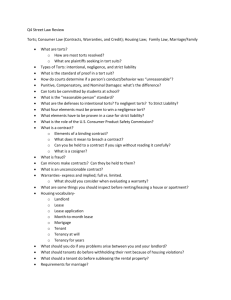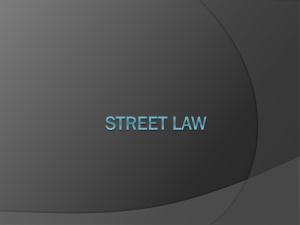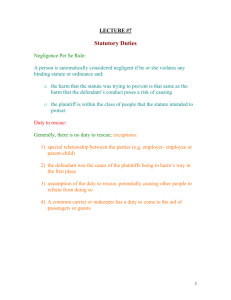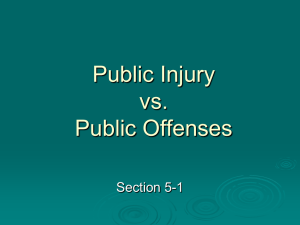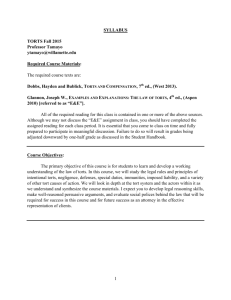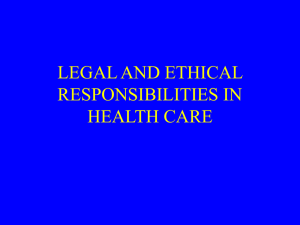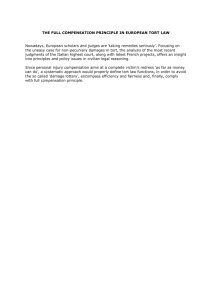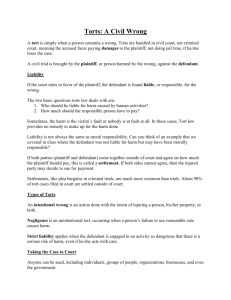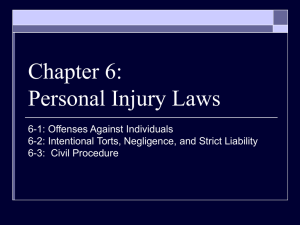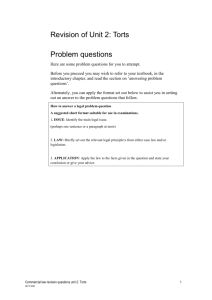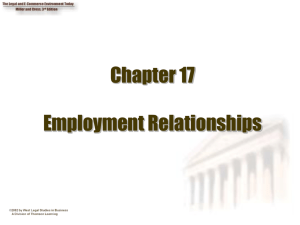What is a tort? --offense against an individual
advertisement
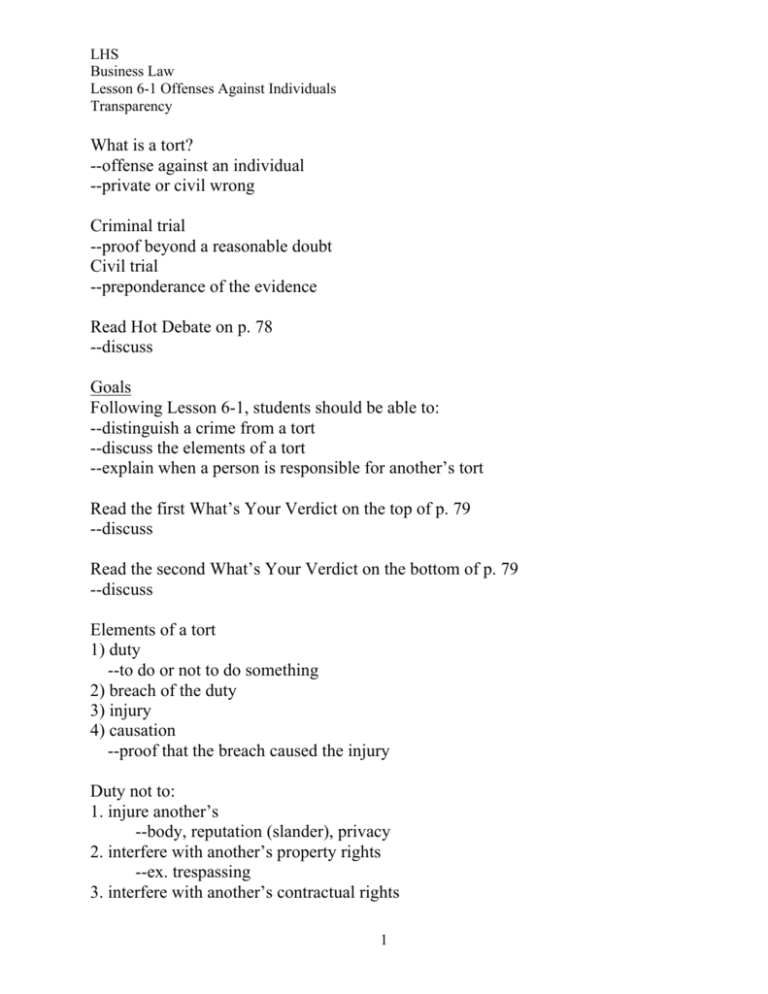
LHS Business Law Lesson 6-1 Offenses Against Individuals Transparency What is a tort? --offense against an individual --private or civil wrong Criminal trial --proof beyond a reasonable doubt Civil trial --preponderance of the evidence Read Hot Debate on p. 78 --discuss Goals Following Lesson 6-1, students should be able to: --distinguish a crime from a tort --discuss the elements of a tort --explain when a person is responsible for another’s tort Read the first What’s Your Verdict on the top of p. 79 --discuss Read the second What’s Your Verdict on the bottom of p. 79 --discuss Elements of a tort 1) duty --to do or not to do something 2) breach of the duty 3) injury 4) causation --proof that the breach caused the injury Duty not to: 1. injure another’s --body, reputation (slander), privacy 2. interfere with another’s property rights --ex. trespassing 3. interfere with another’s contractual rights 1 LHS Business Law Lesson 6-1 Offenses Against Individuals Transparency In order for a party to collect damages --a violation of the duty must be proved Three types of torts 1. intentional torts --on purpose 2. negligent torts --careless 3. strict liability --neither intent nor careless --duty was violated and caused injury causation --breach of duty caused injury proximate cause --causation is recognized by the law Read What’s Your Verdict on p. 80 --discuss In general, all persons are liable for their own torts --including minors and insane persons vicarious liability --one person is liable for the torts of another Generally, parents are not liable for the torts of their children Exceptions: --property damage --operate motor vehicles --parents give them dangerous weapons --dangerous habits (throwing rocks at cars) Assign: Think About Legal Concepts on p. 81 (1-9) Think Critically About Evidence on p. 81 (10-14) 2

